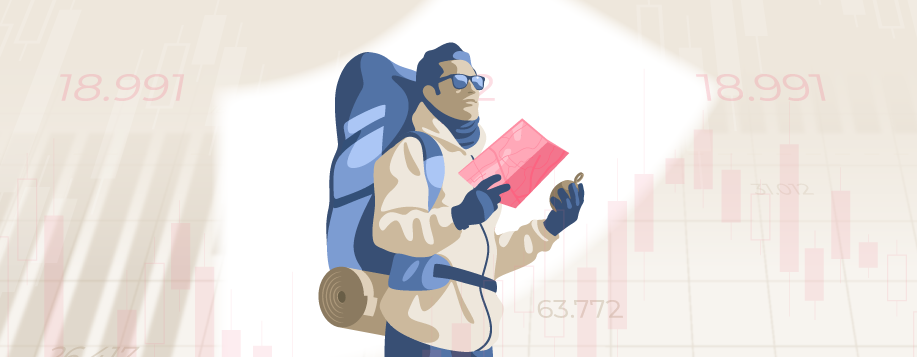Are parents able to make a Junior ISA withdrawal? This article discusses the rules concerning Junior ISAs, how they work, and who can and can’t make Junior ISA withdrawals. To find out more, please read on.
| Who can open a Junior ISA account? | The parents or legal guardians with parental responsibility for the child |
| Can you close a Junior ISA if the child becomes a non-resident in the UK? | No, you can’t close a Junior ISA just because your child moved abroad |
| Can parents withdraw money from a Junior ISA? | Yes, but under certain circumstances |
| When can the child withdraw from a Junior ISA account? | Age 18 |
| Who can contribute to a Junior ISA account? | Anyone |
What is a Junior ISA
A Junior ISA (JISA for short) is a long-term, tax-free savings account that a parent or guardian can set up for children under 18 years of age who are residents here in the UK. However, if the child moves abroad after the JISA has been opened, you can still add cash to the account.
Only the parents or legal guardians of the child can open a JISA. The person opening the account is known as the registered contact. This person can:
- Transfer a Cash JISA to a Stocks and Shares JISA (more on the different types of ISA below)
- Change the account provider. (You should only choose account providers authorised and regulated by the Financial Conduct Authority).
- Advise the provider or HMRC of changes in circumstances.
JISA withdrawal rules
All the money paid into a Junior ISA belongs to the child and can only be accessed by the child via a Junior ISA withdrawal when the child turns 18. The rules of Junior ISA withdrawals are very specific and are discussed below.
When the child reaches age 18, a JISA automatically converts into an adult ISA, and the child, now a young adult, assumes full control of the account.
If you are wondering, ‘Can you make a Junior ISA withdrawal if the child dies?’ then the answer is still no, but in this unfortunate circumstance, the money eventually gets paid to those inheriting the estate.
Under what circumstances can parents withdraw money from a Junior ISA?
There are circumstances under which parents can make a Junior ISA withdrawal. One is if the child has been diagnosed with a terminal illness.
In this instance, the definition of “terminal illness” means that the child has a disease or illness that will worsen and cause death within six months. For those unfortunate enough to explore this option, you will have to complete a terminal illness early access form from HMRC.
The close of a Junior ISA is another circumstance that allows parents to withdraw money from a Junior ISA account. But when can you close a Junior ISA? You can’t just close a Junior ISA account if your child moves abroad and becomes a non-UK resident. As a parent, you can only make a Junior ISA withdrawal to close the account upon the death of the child, when the Junior ISA account balance goes to zero due to insufficient balance or when a “terminal illness claim” has been approved and the funds have been withdrawn, and direct instruction from HMRC.
The different types of Junior ISA
There used to be another type of child savings account – the Child Trust Fund CTF). However, they were discontinued in January 2011 and replaced by Junior ISAs. You can continue to put money into a CTF opened before January 2011, but transfers into a Junior ISA were the preferred option for many parents. Only you can decide which option is the best kids’ investment vehicle.
There are two types of Junior ISA – a Junior Cash ISA and a Junior Stocks and Shares ISA. Which one you choose will be driven by your attitude towards risk. While a Cash JISA is considered a safe option, the potentially riskier Stocks and Shares JISA significantly outperforms it.
It is possible to mitigate risk by diversifying portfolios and only dealing with financial services companies registered in England and Wales under the Financial Services Compensation Scheme.
A child can have both types of JISA, but only one of each type can be opened in the same tax year. However, if you decide to open one of each to hedge your bets, as it were, you can do so. Also, you can initiate an ISA transfer of all or part of the funds from one account to the other.
But, as far as a Junior ISA withdrawal is concerned, no matter which type of JISA it is, the rules remain the same.
Take advantage of the Junior ISA loophole while the going’s good
At present, there is a loophole in the ISA scenario, which means that if you’re wealthy enough to be able to afford it, you can contribute up to £29,000 to a child or young person’s ISA accounts.
The loophole exists because, at present, 16 and 17-year-olds are able to have two ISA allowances in their names. One allowance is the junior ISA of £9,000, and the other is the £20,000 allowance for a cash adult ISA. You see, while a parent can open a junior ISA for their children below the age of 18, those same children can, when they are 16 and 17 years of age, open an adult cash ISA themselves.
The government acknowledges this loophole, but in the Autumn Budget, Chancellor Jeremy Hunt announced it would be closed, but not until the 5th of April 2024. So, at the time of writing, this loophole will remain in place for the next 5 months.
So, while on one hand, the answer to the question “Can parents make a Junior ISA withdrawal?” is no, on the other hand, it means that wealthy parents, or anyone else for that matter if they have the wherewithal, can contribute the maximum of both ISA allowances – £9,000 for the JISA and £20,000 for the adult cash ISA, amounting to a total contribution of £29,000.
This could make a massive difference to the growth of the adult cash ISA over the years, as compound interest gets to work and does its thing.
Final thoughts
Your child can take over their account management from the age of 16 and should be encouraged to do so. At that age, they can also make their own decision about an ISA transfer, and at the age of 18, they can make an ISA withdrawal if they so wish, as specified by their own financial planning. It’s never too early to start setting out your life goals.
Hopefully, you now know the rules of making a Junior ISA withdrawal a little more clearly, and the answer to the question of ‘can parents withdraw money from a Junior ISA’?
Whichever type of JISA you decide is best for your child, the beauty of all ISAs is that they are tax wrappers. The money put into them is subject to compound interest, which applies interest on interest year after year, culminating in considerable savings.
As the money grows, it is protected from the taxman, and when your child, young or old adult, decides to start making withdrawals, these too will be tax-free.
The Junior ISA is one of the best investment vehicles for the children in your life.
FAQ
Can a grandparent contribute to a JISA?
Yes, grandparents contribute to the Junior Savings Account for their grandchildren. Anyone can contribute to a child’s Junior ISA account as long as they adhere to the annual allowance limit.
When can you close a Junior ISA?
The only way you can make a Junior ISA withdrawal as a parent is if the child dies, when the Junior ISA is void and HMRC gives a directive for the Junior ISA account to be closed, and when the account balance goes to zero. The child can close their account when they turn 18.
Does a JISA automatically become an ISA?
Yes, a JISA automatically becomes an adult ISA once the child who owns the account turns 18.
What happens to a JISA if the child dies?
If the child named on the Junior ISA account dies, the child’s parent or estate beneficiary inherits the child’s estate. The beneficiary can also be the child’s spouse if the child was over 16 and married or was in a civil partnership.
*As with all investing, financial instruments involve inherent risks, including loss of capital, market fluctuations and liquidity risk. Past performance is no guarantee of future results. It is important to consider your risk tolerance and investment objectives before proceeding.





